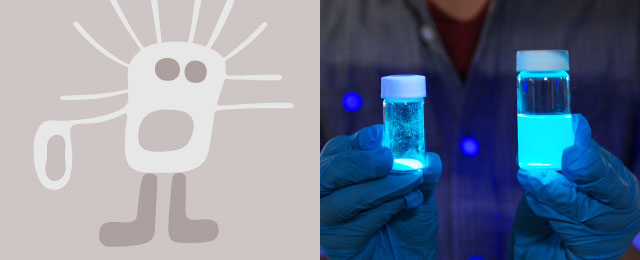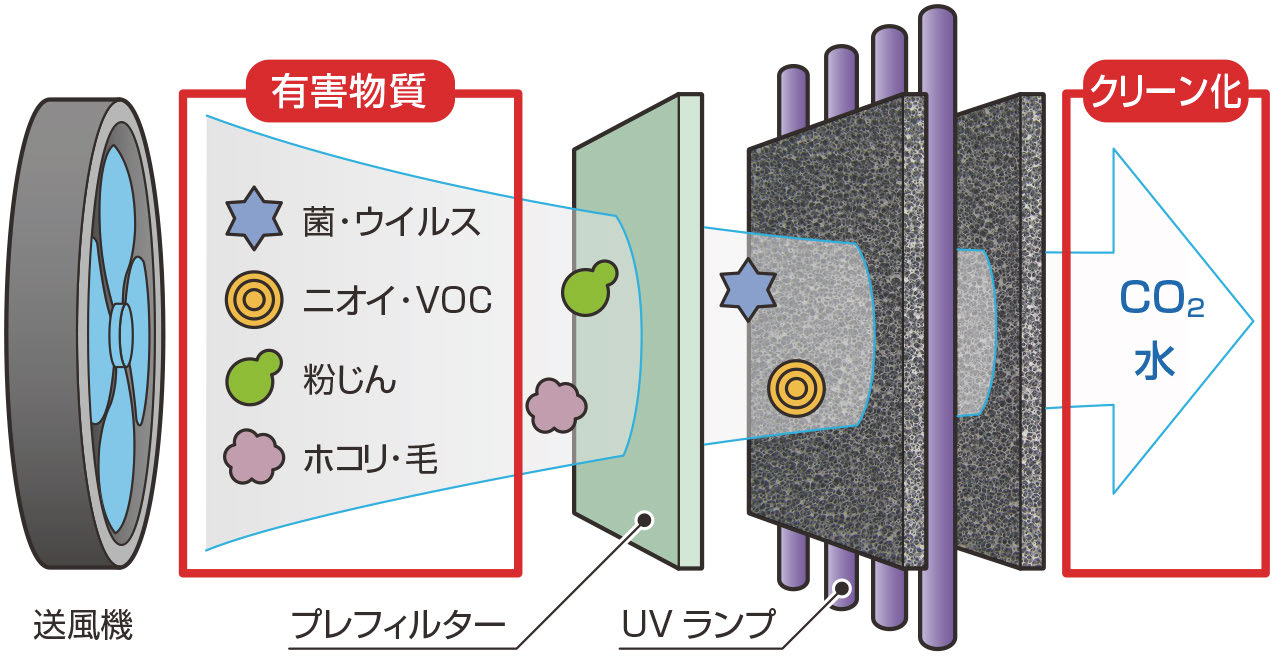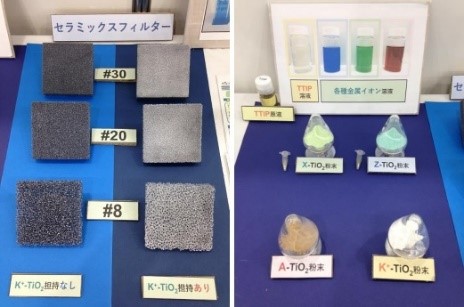







Home > Research > Research Overview > 2023 > Faculty of Engineering 3
Associate Professor, Faculty of Engineering (Inorganic chemistry)
KAWAI Takahiro
Titanium dioxide is a typical photocatalyst that can decompose harmful substances when irradiated with light. In the process of producing titanium dioxide, the Kawai Laboratory at Yamagata University has discovered that simply adding an inexpensive inorganic electrolyte to a stock titanium solution results in titanium dioxide with a high level of photocatalytic activity and also high adsorption performance. This production process can be applied to filters for air purifiers, for example. Filters uniformly coated with titanium dioxide have been fabricated on a trial basis, and they have been found to be able to highly adsorb toxic substances in liquids and gases, to decompose those substances when irradiated with light, and to stand up to repeated use. Reactive oxygen species (ROS) are an indicator of decomposition performance. Research has also confirmed that titanium dioxide generates up to about twice the amount of ROS as commercially available high-performance photocatalysts. This finding is expected to be used in the field of environmental conservation, which involves multiple SDGs, and it is expected to accelerate the expanded use of titanium dioxide as a water purification and deodorizing material.
▲The relationship between the duration of light irradiation and adsorption and degradation behavior
Left) A sample developed in our Laboratory Right) A commercial filter supported with high-performance conventional photocatalyst

▲A sample application (filters for air purifiers)

▲Prototype filters with different pore diameters (left) and a wide range of products for different purposes (right)
Related Links